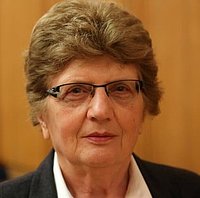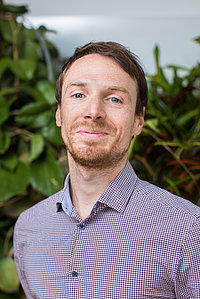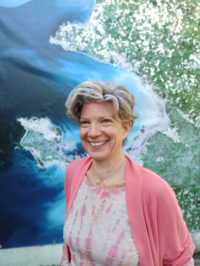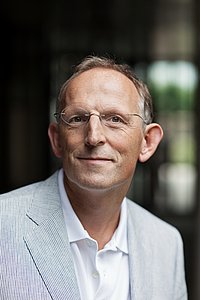Keynote Speakers

The role of freshwater discharge int the biostabilisation of a sandy beach and absence of foredune
By Pr. Y. Battiau (Laboratory of Oceanology and Geosciences UMR 8187 - Lille University -- France)
Research Field Keywords :
Coastal geomorphology, beach-dune systems, aeolian dynamics, sandy beach biostabilisation
Prof. Yvonne Battiau-Queney is a geomorphologist who currently works at the Laboratory of Oceanology and Geosciences at the University of Lille. Following her research into the structural geomorphology of passive margins, she received a Fulbright grant in 1986 and spent six weeks working with Prof. G. Wolman's team at Johns Hopkins University (USA,MD). This experience gave her the opportunity to work alongside sedimentologists in the field and equipped her with invaluable skills for her subsequent work in Lille in the 1990s. At this time, coastal environments became a primary area of research in order to address issues related to marine erosion and rising sea levels. She focused her research on the morphodynamics of coastal systems and the importance of aeolian processes in the resilience of beach-dune systems. Her most recent research deals with the biostabilisation of sandy beaches in relation to freshwater discharge and the development of microbial mats.

The benthic fusion : direct and indirect effects of sediment-dwelling organisms on biogeochemistry
By As. Pr. S. Bonaglia (Dept. of Marine Sciences - University of Gothenburg -- SWEDEN)
Research Field Keywords :
Marine sediments, nitrogen cycle, carbon cycle, meiofauna, macrofauna, holobionts, greenhouse gases
I am a marine biogeochemist who uses a combination of field- and lab-based empirical methods to understand the functions of marine ecosystems. I enjoy being at sea on research vessels and doing lab work using isotope tracers, microsensors, optodes, and other analytical techniques.
My research focuses on marine geochemistry, with a particular emphasis on microbial nitrogen and carbon cycling processes. A central theme of my work is understanding how biotic, abiotic, and human factors shape aquatic biogeochemical cycles. I have investigated both the direct and indirect impacts of sediment-dwelling animals on carbon degradation and nitrogen cycling. My findings demonstrate that the activities of even the smallest organisms can have profound cascade effects on essential ecosystem functions. These insights underscore the importance of preserving these ecosystems and the endangered organisms that inhabit them.

Unlocking the Role of Tidal Flats in the Global Carbon Budget: Insights from Remote Sensing and Interdisciplinary Research
By Pr. V. Méléder (Dept. of Biology - Nantes University -- FRANCE)
Research Field Keywords :
mudflat, microphytobenthos, remote sensing, Gross Primary Production, restoration, rewilding
Pr. Vona Méléder is a marine scientist specializing in the contribution of tidal flats to the global carbon budget, with a focus on microphytobenthos communities inhabiting intertidal sediments. Leveraging expertise in radiometry, pigment analysis, taxonomy, and ecophysiology, she develops innovative algorithms for remote sensing to map biodiversity, biomass, and primary production at various scales. As the coordinator of the EU-funded REWRITE project, she fosters interdisciplinary collaborations to restore ecosystem services provided by intertidal sediments. Pr. Méléder’s extensive international collaborations reflect her commitment to advancing sustainable management of coastal ecosystems through cutting-edge research and stakeholder engagement.

Carbon transfers and transformation along the aquatic continuum
By Pr. Jack J. Middelburg (Dept. of Earth Sciences - Utrecht University -- THE NETHERLANDS)
Research Field Keywords :
Biogeochemistry, Ecosystems, Inland waters, Coastal, Ocean, Sediments
Prof. Jack J. Middelburg is a biogeochemist chairing the Department of Earth Sciences of Utrecht University. His research is at the interface of geochemistry, ecology, microbiology, limnology, and oceanography. His research portfolio comprises field studies from the tropics to the poles and from lakes to the deep sea, laboratory and in situ experimentation using stable isotopes as deliberate tracers, and theory and model development to quantify biogeochemical dynamics.
His most recent research deals with the biogeochemistry of global inland waters, alkalinity and calcium carbonate dynamics in the ocean, silicate alteration in marine sediments and cable bacteria and sponges at the sea floor. He has authored a graduate text on Marine Carbon Biogeochemistry (2019) and an introductory text on Thermodynamics and Equilibria in Earth System Sciences (2024).
